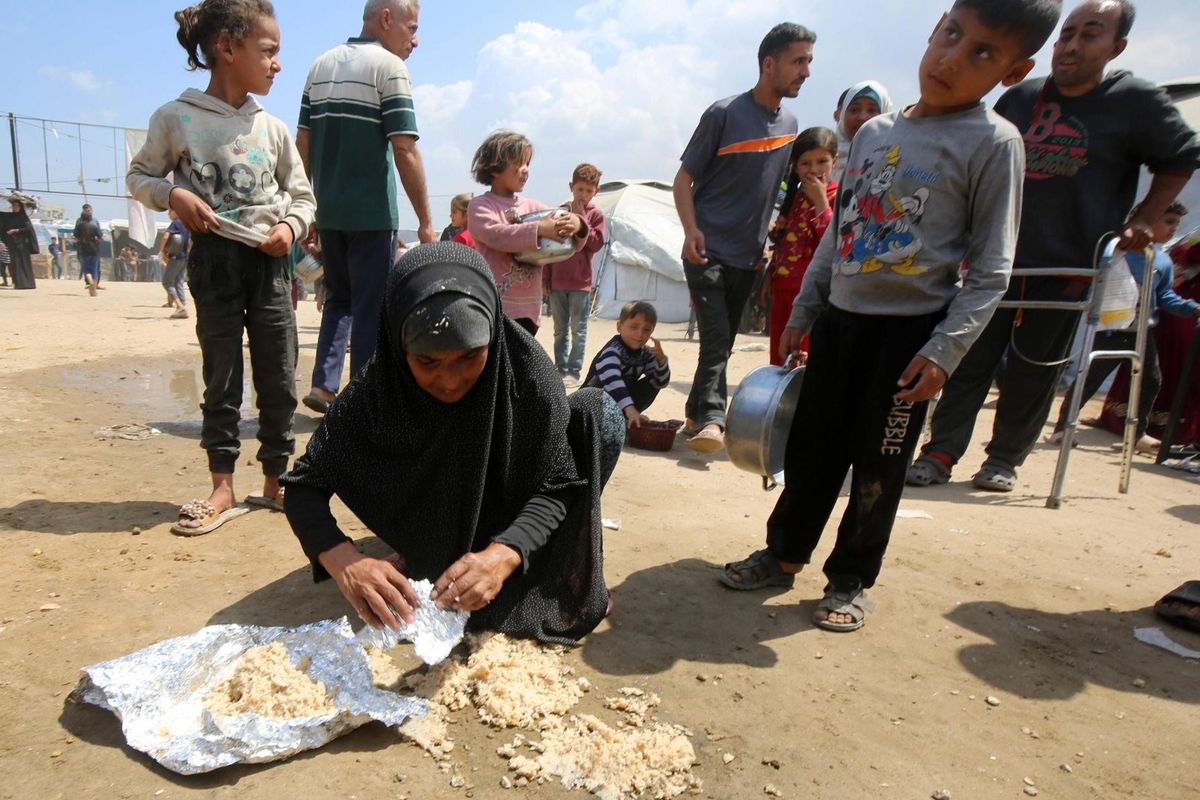As Israel moves to expand military operations in Gaza, even approving plans to capture the entire strip, it also wants to seize control of humanitarian aid distribution there — with the help of private U.S. military contractors.
As reported by the Washington Post, the contractors will be supplied by UG Solutions and Safe Reach Solutions — the same American contractors previously involved in checkpoint and security maintenance in the Gaza Strip during the since-broken ceasefire, as Axios reported back in January.
Israel’s push for control of aid distribution in the Gaza Strip is a condition for lifting its more than two-month blockade, leading Gaza toward famine. According to its proposal, Israeli soldiers would guard the periphery of the aid distribution hub, where about 60 trucks of food would be allowed into the strip per day — a mere tenth of the volume permitted during the ceasefire. Under the plan, the American military contractors would handle the aid distribution from there. All existing soup kitchens and distribution centers would be shuttered.
In general, having outside private military contractors in a war zone comes with a host of legal ambiguities. The rules governing their conduct — and the legal framework protecting them — are often poorly defined. That these American contractors would apparently report to Israel, a foreign government, in a territory it reportedly plans to capture and occupy no less, only further muddies the waters.
“Private military contractors continue to push the legal boundaries of using civilians in combat zones. The ambiguity of which jurisdiction cover these contractors — Israeli, Palestinian, U.S. — is being hidden by who is paying the contract,” former Blackwater contractor Morgan Lerette, the author of Guns, Girls, and Greed: I Was a Blackwater Mercenary in Iraq, told Responsible Statecraft.
“Aside from the danger, putting armed U.S. civilians in an active battlefield to feed locals, is reminiscent of Somalia in 1993. We can only hope it doesn’t end in a similar fashion,” Lerette explained, referencing the infamous “Black Hawk Down” battle where clashes between U.S. and Somali forces in a densely populated Mogadishu neighborhood lead to heavy civilian casualties.
Speaking anonymously, a former U.S. official told NPR that Israel attempted to roll-out a similar aid plan in Gaza during the last administration. They alleged that the Biden administration, understanding the Israeli plan as manipulating humanitarian aid for military purposes, rejected it as a breach of international law.
The United Nations and some aid partners involved in Gaza rejected the latest Israeli aid plan in a joint statement yesterday, alleging it “contravenes fundamental humanitarian principles and appears designed to reinforce control over life-sustaining items as a pressure tactic — as part of a military strategy.”
"We will not participate in any scheme that does not adhere to the global humanitarian principles of humanity, impartiality, independence and neutrality,” the statement read.
For its part, Israel is moving full speed ahead toward complete domination of the Gaza Strip, where Israeli officials hope Palestinians will feel compelled to leave. At the time of writing, at least 62,000 Palestinians have been killed by Israel since October 7.
"We are conquering Gaza to stay — no more in-and-out. This is a war for victory, and it's time to stop being afraid of the word 'occupation.' We are defeating Hamas — we will not surrender, they will surrender,” Israel Finance Minister Bezalel Smotrich said of Israel’s current Gaza operations.
UG Solutions and Safe Reach Solutions did not answer RS’ requests for comment in time for publication.
- Mission creep: Will pier become a beachhead for US in Gaza? ›
- American guns are going to Gaza ›
- Surprise: CIA link to sketchy Israeli aid scheme | Responsible Statecraft ›
- US contractors lose control, cause meltdown at new aid center in Gaza | Responsible Statecraft ›
- Democrats to admin: Use your tools to get aid into Gaza now | Responsible Statecraft ›
- $21.7 billion in US military aid has fueled Israel's war on Gaza | Responsible Statecraft ›
















